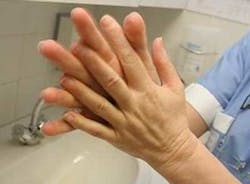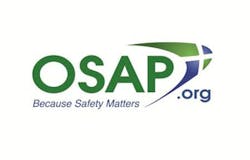To the rockin’ dental assistants in charge of OSHA and infection control programs
Editor’s Note: This article was written by infection control expert Karen Daw, aka “The OSHA Lady,” and originally appeared on DentistryIQ and Dental Assisting Digest in September 2017. The information she shares is as relevant for today's dental assistants as it was three years ago, if not more relevant.
My sister recently gave me a trick lottery scratch-off card. As I scratched and the card revealed I had won the grand prize, I was shocked and scared. I felt extremely lucky, yet worried about how my life would change. My sister burst out laughing and told me it was all a joke. I’m sure the video can be found on her Facebook page.
You may be feeling the same elation and anxiety I did when I thought my day-to-day life was going to change because you were volunteered (rather, volun-told) that you're taking over the OSHA and infection control program in your dental office. Good for you! This is a huge responsibility, so you were obviously selected for your skills and capability. (Either that or you lost a bet.) Regardless, I’m confident you’re in this role because the doctor believes you’re the most qualified to ensure you have a comprehensive and robust set of policies. (Also, didn’t you receive a nice raise, company car, and trip to Hawaii for the added responsibilities? Yeah, me neither.) But I know you can do it!
The infection control coordinator (ICC) may also have responsibilities related to OSHA. Whether you call yourself the ICC, the safety director, or the OSHA queen, your job responsibilities should be clearly defined, you should enlist the support of the leaders in the practice, and you will need the support of other team members. You will also need to network and consult with experts in the field. For example, working with an OSHA and infection control (IC) consultant can help you immensely with getting the program going, and can provide you with ongoing guidance.
You’ll need to attend and then schedule IC training for the team. As you know, OSHA training is an annual requirement. You must also be allowed to connect with resources. I strongly suggest a membership with the Organization for Safety, Asepsis and Prevention (OSAP), a non-profit dedicated to the safest dental visits. All of this helps you to ultimately create a “culture of safety.” But for now, leave that OSHA binder on the shelf, don’t think about all the weekly, monthly, quarterly, and annual checklists you’ll eventually need to create. Focus on making sure you have the right assistance to tackle this responsibility. Because let’s face it, it’s going to be B-I-G and it’s going to take time, but the rewards will be worth it!
My lottery prank was about a year ago, and since then I’ve been thinking about how I’m going to get payback. I’ve enlisted the help of friends and family so that I leave no stone unturned. I’ve even hired a camera crew to film the prank. With that kind of planning and support the results are going to be epic, just like your office’s OSHA and infection control program!
About the Author

Karen Daw, MBA, CECM
Karen Daw, MBA, CECM, is an award-winning national speaker, author of numerous articles and CE courses on safety in dentistry, and a trainer for practices and health-care systems across the country. She earned her BA from Ohio State University and her MBA with concentrations in healthcare administration and business management. After graduating, Daw was recruited from the emergency department to become assistant director of sterilization monitoring and health and safety director for the OSU College of Dentistry. She is a proud member of the Organization for Safety Asepsis and Prevention, where she served as cochair for their annual conference and infection control boot camp.
Updated December 14, 2021


